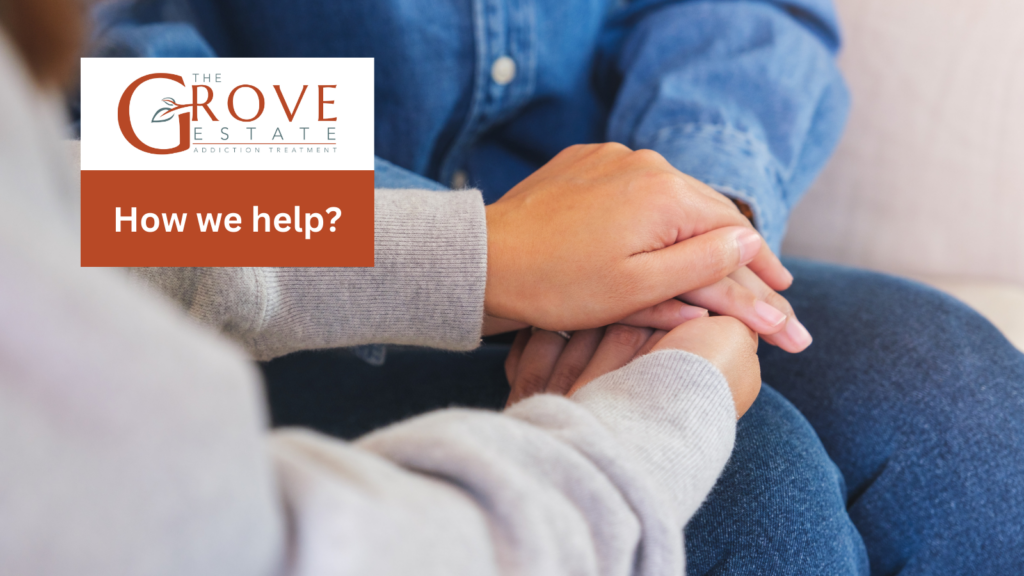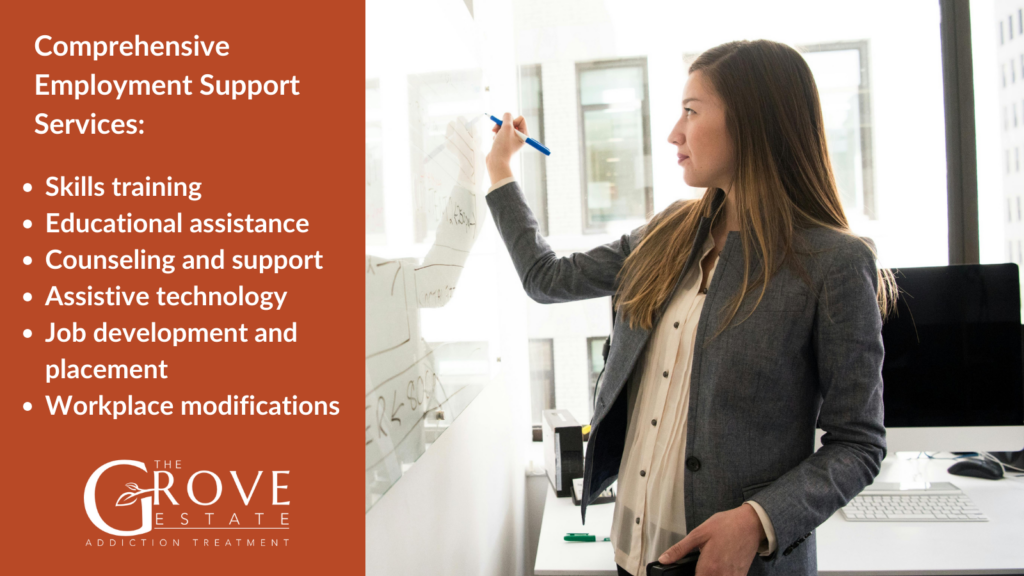Vocational rehabilitation, often shortened to VR or voc rehab, is a program designed to empower individuals with disabilities or limitations to achieve their employment goals. It’s a comprehensive approach that focuses on overcoming barriers and increasing a person’s ability to access, maintain, or return to meaningful work.
These programs are usually organized by the government for the 26.6% of adults who are disabled in the US according to the Centers for Disease Control and Prevention (CDC). It involves assessing and identifying disabled ones who mighty need help (re)entering the workforce. Once rehab is complete, a client gains the needed skills and confidence to apply for and get a job.
Vocational rehabilitation benefits the client individually by increasing their ability and reducing their dependence on others for help. But it also benefits the economy as the reliance on social services is reduced.
What is Vocational Rehabilitation?
The Rehabilitation Services Administration (RSA) defines vocational rehabilitation as: “A program of services that is designed to help individuals with disabilities prepare for, obtain, enter, maintain, or regain employment. Vocational rehabilitation services may include vocational rehabilitation counseling, vocational assessment, training, job placement, and other services.
Vocational rehabilitation isn’t a one-size-fits-all solution. It involves a customized plan created through collaboration between a vocational rehabilitation counselor and the individual seeking services. The counselor will conduct a thorough assessment to understand the person:
- Skills and strengths
- Interests and preferences
- Limitations and challenges
Based on this assessment, the vocational rehabilitation program can include various services such as:
- Skills training
- Assistive technology
- Job placement assistance
- Workplace modifications
Ultimately, vocational rehabilitation aims to empower individuals with disabilities to achieve independence and self-sufficiency through meaningful employment. Here’s a closer look at some key goals:
- Increase employability: By focusing on skill development and overcoming obstacles, VR programs help individuals become more competitive candidates in the job market.
- Improve the quality of life: Meaningful work contributes to a sense of purpose, financial stability, and well-being.
- Reduce dependence on social services: By enabling individuals to secure employment and support themselves, VR programs can lessen the reliance on government assistance.

How Does Vocational Rehab Work?
The vocational rehabilitation process typically follows a series of steps to ensure a customized and effective program for each individual. Here’s a breakdown of the common stages:
- Referral and application
- Intake appointment
- Eligibility Determination
- Assessment
- Skills and aptitudes
- Interests and preferences
- Educational background
- Physical, cognitive, or emotional limitations
- Assessments might involve standardized tests, interviews, and observations.
- Individualized Plan for Employment (IPE):
Based on the assessment findings, you and your counselor will collaboratively develop a personalized plan outlining your specific goals, the services you’ll receive, and timelines for achieving desired outcomes.
- Service Provision: Depending on your needs identified in the IPE, you might receive various services such as:
- Skills training
- Assistive technology
- Job development and placement
- Workplace modifications
- Employment and follow-up
- Case closure
Who Benefits From Vocational Rehabilitation?
Vocational rehabilitation offers a helping hand to a wide range of individuals seeking to (re)enter the workforce. Here’s a breakdown of some key groups who benefit:
Individuals with Disabilities:
- Physical Disabilities: People with physical limitations due to accidents, illnesses, or congenital conditions can benefit from vocational rehabilitation. Programs can help them develop strategies to manage their disabilities in the workplace and identify suitable careers that match their abilities.
- Learning Disabilities: Individuals with learning disabilities like dyslexia or ADHD can receive support to develop workplace skills and strategies to overcome challenges. Vocational rehabilitation can help them find jobs that suit their learning styles and strengths.
- Mental Health Conditions: People with mental health conditions such as anxiety or depression can benefit from vocational rehabilitation programs that offer support for managing their condition in a work environment. Training in coping mechanisms and job search skills can empower them to re-enter the workforce with confidence.
Other Target Groups
- Individuals with Long-Term Illnesses: Those with chronic illnesses that may limit physical ability can benefit from vocational rehabilitation. Programs can assess their skills and limitations, and then help them find suitable employment opportunities.
- People Re-entering the Workforce: Individuals who have been out of work for a long time, such as stay-at-home parents or those facing redundancy, can benefit from vocational rehabilitation. They can receive guidance on updating their skills, job search strategies, and interview techniques.
Several studies have shown that vocational rehabilitation is a very effective way to help disabled persons. Dutta A. et al in their 2009 study ‘Vocational Rehabilitation Services and Employment Outcomes for People with Disabilities’ showed that 62% of the 5000 clients they sampled were able to get a job following rehab. All clients gave positive reviews about the services they received during rehab.

What are the Key Services in Vocational Rehabilitation?
Vocational rehabilitation programs offer a wide range of services to address individual needs. Here are some common examples:
- Skills training: As mentioned earlier, this could involve vocational training for a specific career path or job readiness training to improve interview techniques and resume writing.
- Educational assistance: VR programs might offer support with obtaining necessary certifications or pursuing further education relevant to your chosen field.
- Counseling and support: Vocational rehabilitation counselors can provide guidance, emotional support, and motivation.
- Assistive technology: VR programs can help explore and implement tools or software that can help overcome limitations and enhance job performance. This could include screen readers for visually impaired individuals or ergonomic equipment for those with physical limitations.
- Job development and placement: Vocational rehabilitation counselors can assist with resume writing, job search strategies, and connecting you with potential employers. They might also offer interview preparation and coaching.
- Workplace modifications: Working with employers to adapt the work environment or tasks to suit your needs better could involve flexible working hours, accessible workstations, or specialized equipment.
What is the Role of Vocational Rehabilitation Counselors?
Vocational rehabilitation counselors play a critical role in empowering individuals with disabilities and others facing employment challenges to achieve their career goals. They act as guides and advocates throughout the vocational rehabilitation process.
Skills and Qualifications
- Master’s degree in rehabilitation counseling or a related field: This equips them with the knowledge and skills needed to assess vocational potential, develop plans, and provide counseling.
- Strong communication and interpersonal skills: Building rapport, actively listening, and effectively communicating with clients from diverse backgrounds is essential.
- Assessment skills: Counselors use standardized tests and interviews to evaluate a client’s skills, interests, limitations, and potential for different careers.
- Job development skills: They have a strong understanding of the labor market and can identify suitable job opportunities for their clients.
- Knowledge of disability laws and resources: This allows them to advocate for clients’ rights and connect them with relevant support services.
Using thier skills and qualificationon, vocational rehab counselorsrs can help clients by providing the following.
- Assessment and planning
- Counseling and support
- Job development and placement
- Collaboration
- Follow-up and Monitoring
By combining their expertise with a client’s unique needs and goals, vocational rehabilitation counselors play a key role in creating a path to meaningful employment and a brighter future.
Accessibility and Vocational Rehab Programs
Vocational rehabilitation programs strive to be inclusive and accessible for individuals with a wide range of disabilities. Here’s how they address the needs of people with special needs:
Addressing Needs:
- Individualized Assessments: Counselors take a person-centered approach, considering each client’s specific needs and limitations during the assessment process. This allows for the identification of appropriate support services and accommodations.
- Assistive Technology: Programs may provide or recommend assistive technology to help individuals overcome challenges and function effectively in the workplace. Examples include screen readers for visually impaired individuals or ergonomic equipment for those with physical limitations.
- Accessible Learning Materials: Vocational rehabilitation programs ensure that training materials are accessible in various formats, such as Braille, audio recordings, or transcripts, to cater to individuals with different learning styles and disabilities.
- Accessible Facilities and Equipment: Training facilities and workplaces should be accessible, with features like ramps, elevators, and adapted workstations to ensure participation for individuals with mobility limitations.
Inclusive Practices
- Disability Awareness Training: Counselors and staff undergo training to develop sensitivity and understanding of various disabilities. This equips them to better serve clients and create a more inclusive environment.
- Flexible Program Options: Programs offer flexible scheduling and learning options to accommodate individuals with limitations. This might include part-time schedules, online training modules, or alternative testing arrangements.
- Collaboration with Disability Service Providers: Vocational rehabilitation programs may collaborate with external disability service providers to offer specialized support services and address clients’ unique needs.
- Peer Support Groups: Creating or connecting clients with peer support groups can foster a sense of community and provide valuable insights and encouragement from individuals facing similar challenges.
Examples of Inclusive Practices
- A vocational rehabilitation program offers job interview coaching that incorporates role-playing scenarios specifically designed to address communication challenges faced by individuals on the autism spectrum.
- A training program provides participants with voice-activated software to assist with writing assignments, catering to individuals with limited dexterity.
- Counselors work with employers to create flexible work arrangements for individuals with chronic health conditions.
The Impact of Vocational Rehabilitation
Vocational rehabilitation (VR) programs offer a lifeline to many. They help individuals with disabilities and others facing employment barriers find and keep jobs. VR programs are designed to be accessible and inclusive. Counselors assess each client’s needs and provide individualized support, including assistive technology and accessible learning materials.
A 2017 study by Andersén Å, Ståhl C, Anderzén I, et al titled ‘Positive experiences of a vocational rehabilitation intervention for individuals on long-term sick leave, the Dirigo project: a qualitative study’ showed that clients reported an overall happy result with vocational rehab. The study found participants in a vocational rehabilitation program had positive experiences. Four key factors contributed to this:
- Clients received a variety of support services tailored to their needs.
- Clients felt treated well and respected by the program staff.
- The program’s approach to helping clients find jobs was well-received.
- The program provided opportunities for clients to develop their skills and confidence.
The impact of VR programs is significant. They help people with disabilities achieve independence, financial security, and greater self-esteem. The society also benefits from VR programs. Increased employment rates for people with disabilities translate to reduced dependence on public benefits and a more diverse and inclusive workforce. VR programs are an investment in the future, empowering individuals and strengthening society as a whole.
Navigating Vocational Rehabilitation Programs
Vocational rehabilitation programs are a valuable resource for individuals with disabilities or those facing challenges re-entering the workforce. In the US, vocational rehabilitation programs are typically administered on a state-by-state basis. Eligibility criteria may vary slightly, but generally, programs target individuals with disabilities that create a barrier to employment. This could include physical, mental, or learning disabilities.
There are several avenues to explore when searching for vocational rehabilitation programs in the US:
- State Vocational Rehabilitation Agencies: Each state has a designated vocational rehabilitation agency. You can find contact information through a web search for “[your state] vocational rehabilitation” or by visiting the Rehabilitation Services Administration’s website.
- Contact your state’s vocational rehabilitation agency: They will explain the application process, eligibility requirements, and the services offered.
- Prepare documentation: You may need to provide medical records, proof of disability, and any relevant educational or work experience documents. The specific requirements will be provided by the vocational rehabilitation agency.
Once you’ve submitted your application, a vocational rehabilitation counselor will contact you to discuss your needs and goals. They will work with you to develop a personalized plan to help you achieve your employment objectives.
What is the meaning of disability rehabilitation?
Disability rehabilitation is a program designed to help individuals with disabilities prepare for, obtain, enter, maintain, or regain employment. It offers a variety of services to empower people with disabilities to achieve their career goals and become more independent.
How many months is vocational rehab?
The duration of vocational rehabilitation programs varies depending on individual needs and program design. It’s not a one-size-fits-all approach. Some programs might be completed in a few months, while others may take a year or longer. The vocational rehabilitation counselor will work with you to develop a personalized plan that outlines the timeframe for achieving your employment goals.
How can vocational rehabilitation assist individuals with substance abuse recovery?
Vocational rehabilitation is essential in the recovery process for those overcoming substance abuse, aiding in their reintegration into work and society. It provides key support like career counseling and job training, tailored for recovery individuals, to help them secure stable, purposeful careers post-rehabilitation. Understanding a typical day in drug rehab integrates vocational planning with recovery, ensuring skills development for workplace success alongside overcoming addiction.
Transitioning back to daily life post-rehab, individuals can find valuable support through residential rehab programs that incorporate vocational rehabilitation. This holistic approach addresses both the psychological recovery and the practical steps towards building a fulfilling life, emphasizing the importance of vocational achievement for maintaining sobriety and well-being.

Share This Post



